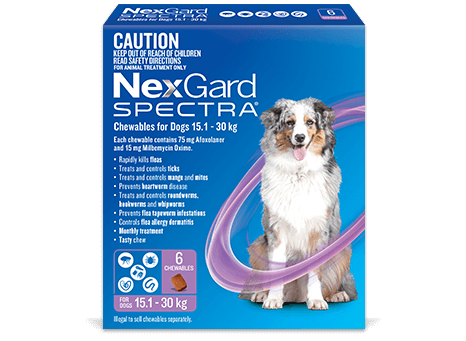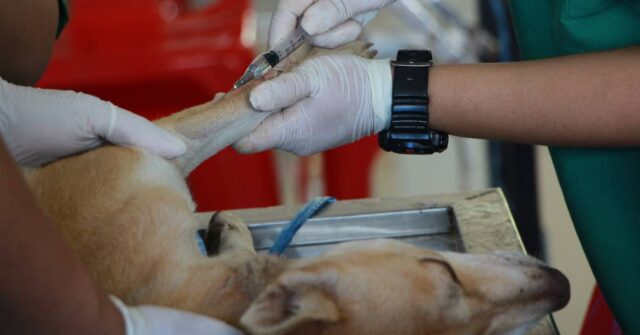Over-the-counter (OTC) medications are a staple in many households, but when it comes to our canine companions, these seemingly harmless drugs can pose serious risks.
Understanding the dangers of OTC medications for dogs is crucial for every pet owner to ensure their pet’s safety and well-being.
Introduction
Many dog owners might think that giving their pets human medications is a convenient solution for minor ailments. However, this can lead to serious health complications.
This article explores the potential dangers, symptoms of poisoning, and safer alternatives to human medications for dogs.
Understanding the Prevalence of OTC Medications in Households
OTC medications are widely available and commonly used in homes for various health issues. From pain relievers to cold remedies, these drugs are often within easy reach.
Unfortunately, their accessibility can lead to accidental ingestion by pets, causing severe health problems.
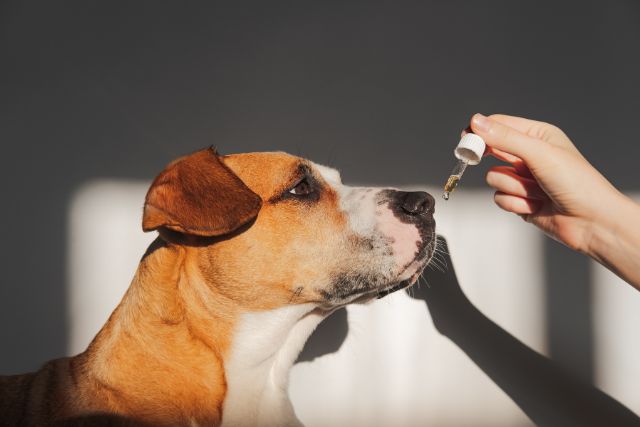
Why This Topic Is Important for Dog Owners
Knowing the risks associated with OTC medications for dogs is vital for preventing accidental poisonings and ensuring that pets receive appropriate treatment for their ailments.
By understanding these dangers, dog owners can make informed decisions about their pets’ health care.
Common Over-the-Counter Medications and Their Risks
Not all OTC medications are safe for dogs. In fact, many can cause significant harm. Here, we delve into the most commonly misused OTC medications and their risks.
NSAIDs (Non-Steroidal Anti-Inflammatory Drugs)
NSAIDs, such as ibuprofen and aspirin, are commonly used for pain relief in humans but can be extremely dangerous for dogs.
How NSAIDs Work
NSAIDs work by inhibiting an enzyme called cyclooxygenase, which reduces inflammation and pain.
However, these drugs also affect other physiological processes, such as blood flow to the kidneys and blood clotting.
Potential Side Effects and Risks
In dogs, NSAIDs can cause gastrointestinal ulcers, kidney failure, and severe internal bleeding. Even small doses can be harmful, and symptoms of toxicity include vomiting, diarrhea, and lethargy.
Case Studies of NSAID Poisoning in Dogs
Numerous cases have documented the harmful effects of NSAIDs on dogs.
For example, a single dose of ibuprofen can lead to acute kidney failure in dogs, highlighting the importance of keeping these medications out of reach.
Acetaminophen (Paracetamol)
Acetaminophen, known as paracetamol in Australia, is another common OTC medication that can be toxic to dogs.
Mechanism of Action in Humans vs. Dogs
While acetaminophen is used to reduce pain and fever in humans, it works differently in dogs, leading to severe health issues even at low doses.
Risks and Toxicity Levels in Dogs
Acetaminophen can cause liver damage and red blood cell destruction in dogs. Symptoms of toxicity include vomiting, abdominal pain, and jaundice. In severe cases, it can lead to liver failure and death.
Symptoms of Acetaminophen Poisoning
Early signs of acetaminophen poisoning include vomiting, weakness, and difficulty breathing. As the condition progresses, dogs may develop swelling of the face or paws and dark or bloody urine.
Other Commonly Misused OTC Medications
Aside from NSAIDs and acetaminophen, several other OTC medications are commonly misused, posing significant risks to dogs.

Antihistamines
While some antihistamines can be used under veterinary guidance, others can cause sedation, agitation, and even seizures in dogs.
Cold and Flu Medications
Many cold and flu medications contain multiple active ingredients, including decongestants, which can be toxic to dogs and cause elevated heart rates, tremors, and high blood pressure.
Antacids and Digestive Aids
Some antacids can cause electrolyte imbalances and other gastrointestinal issues in dogs. It is always best to consult a vet before administering any digestive aids.
Topical Creams and Ointments
Topical treatments like hydrocortisone and antifungal creams can be toxic if ingested. Dogs often lick treated areas, leading to potential poisoning.
Recognizing Symptoms of Medication Poisoning
Early detection of medication poisoning can save a dog’s life. Understanding the symptoms and acting quickly is essential.
Early Warning Signs
Identifying early symptoms of medication poisoning can prevent severe complications.

Gastrointestinal Symptoms
Common signs include vomiting, diarrhea, loss of appetite, and abdominal pain. These symptoms often appear shortly after ingestion.
Neurological Symptoms
Neurological signs of poisoning include tremors, seizures, and lack of coordination. These symptoms indicate severe toxicity and require immediate veterinary attention.
Other Common Indicators
Additional signs of poisoning can include excessive drooling, lethargy, and changes in behavior. Any sudden, unexplained symptoms should be taken seriously.
Advanced Symptoms and Complications
If early signs are missed, poisoning can lead to more severe symptoms and complications.
Organ Failure
Severe poisoning can result in organ failure, particularly of the kidneys and liver. This can manifest as jaundice, extreme fatigue, and changes in urine output.
Neurological Damage
Prolonged exposure to toxic substances can cause permanent neurological damage, affecting a dog’s mobility and cognitive functions.
Potential for Fatal Outcomes
Without prompt treatment, medication poisoning can be fatal. Ensuring timely veterinary intervention is crucial to prevent death.
What To Do If Your Dog Ingests Human Medication
Quick and appropriate action can make all the difference if your dog ingests human medication.
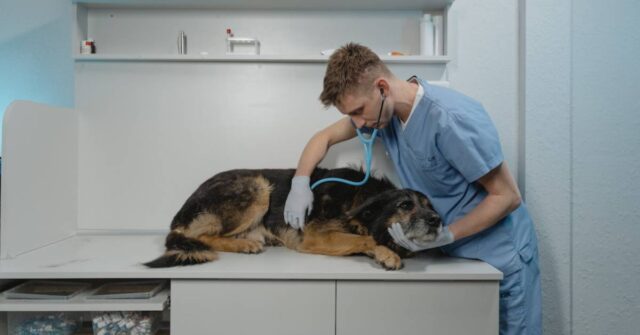
Immediate Steps to Take
Knowing what to do immediately can mitigate the effects of poisoning and save your dog’s life.
Contacting Your Veterinarian
Call your vet or an emergency animal clinic immediately. Provide details about the medication, dosage, and your dog’s weight and condition.
Providing Necessary Information
Be ready to inform the vet about your dog’s age, weight, pre-existing health conditions, and any other medications they are currently taking.
Emergency Treatments and Procedures
Veterinary professionals can administer treatments to counteract the effects of poisoning.
Inducing Vomiting (When and How)
If instructed by a vet, you may need to induce vomiting to prevent further absorption of the toxin. Hydrogen peroxide is commonly used for this purpose, but only under veterinary guidance.
Activated Charcoal Use
Activated charcoal can help absorb toxins in the stomach, reducing their harmful effects. This should also be administered by a professional.
Hospitalization and Intensive Care
In severe cases, your dog may require hospitalization for intensive care, including IV fluids, medications to protect the organs, and continuous monitoring.
Safe Alternatives for Pain and Ailments in Dogs
There are safer alternatives to human medications that can effectively treat your dog’s pain and other ailments.
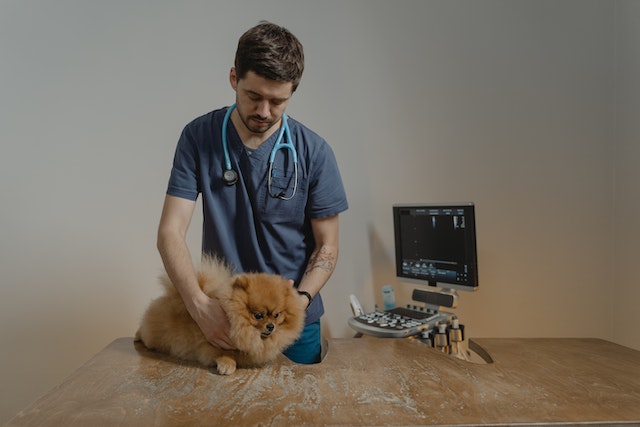
Veterinary-Approved Pain Medications
Consult your vet for pain medications specifically designed for dogs.
Carprofen
Carprofen is commonly prescribed for pain relief and inflammation in dogs, particularly for arthritis and post-surgery recovery.
Deracoxib
Deracoxib is another NSAID used for pain management in dogs, especially for conditions like osteoarthritis and post-operative pain.
Firocoxib
Firocoxib is effective for managing pain and inflammation associated with osteoarthritis in dogs and has a favourable safety profile when used correctly.
Meloxicam
Meloxicam is an anti-inflammatory medication used to treat pain and inflammation in dogs, often prescribed for arthritis and post-surgical recovery.
Natural and Homeopathic Remedies
In some cases, natural remedies can be a safe alternative to conventional medications.

When They Are Appropriate
Natural remedies should be used under the guidance of a veterinarian, particularly for mild conditions or as complementary treatments.
Common Natural Remedies
Glucosamine and chondroitin supplements, omega-3 fatty acids, and herbal treatments like turmeric can help manage pain and inflammation in dogs.
Preventive Care and Wellness
Regular preventive care can reduce the need for medications and keep your dog healthy.
Regular Veterinary Check-Ups
Routine vet visits can help detect and treat health issues early, preventing them from developing into more serious problems.
During these check-ups, your vet can perform physical exams, update vaccinations, and monitor your dog’s overall health.
Regular visits allow for early diagnosis of conditions like dental disease, obesity, and heart problems.
These appointments are also an opportunity to discuss any concerns you have about your dog’s behaviour, diet, and lifestyle.
Early intervention and consistent veterinary care are crucial in maintaining your dog’s health and longevity.
Nutrition and Supplements
Proper nutrition is the cornerstone of a dog’s health. High-quality dog food, appropriate for their age, size, and health status, should be the basis of their diet.
Supplements like omega-3 fatty acids, glucosamine, and probiotics can support joint health, skin and coat health, and digestive health respectively.
Always consult with a veterinarian before adding any supplements to your dog’s diet.

Exercise and Physical Therapy
Regular exercise helps maintain a healthy weight, reduces the risk of chronic diseases, and improves mental health.
Physical therapy can also be beneficial for dogs recovering from surgery or suffering from chronic pain conditions like arthritis.
Activities such as swimming, walking, and gentle play can be adjusted to suit your dog’s specific needs and capabilities.
Preventing Accidental Ingestion of Medications
Preventing your dog from accessing human medications is crucial. Proper storage and awareness are key to avoiding accidental ingestion.
Safe Storage Practices
Storing medications safely is the first step in preventing accidental ingestion. Keep all medications out of reach of pets, ideally in locked cabinets or high shelves.
Child-Proof and Pet-Proof Containers
Using child-proof containers can also help prevent pets from accessing medications. These containers are designed to be difficult for both children and pets to open.
Ensure that all medication bottles are tightly sealed and stored away immediately after use.
Storing Medications Out of Reach
Never leave medications on countertops, tables, or anywhere within a dog’s reach.
Be particularly cautious with bags or purses that may contain medications, as dogs can easily access these items if left unattended.
Educate all household members and visitors about the importance of keeping medications secure.
Education and Awareness
Educating yourself and others about the dangers of human medications to dogs can help prevent accidental poisonings.
Educating Family Members and Guests
Make sure that everyone in the household, including children and visitors, understands the risks of leaving medications within a dog’s reach.
Encourage them to store their medications safely and to be mindful of any pills that might be dropped on the floor.
Understanding Common Household Hazards
In addition to medications, be aware of other household items that can be hazardous to pets. This includes certain foods, cleaning supplies, and small objects that can be ingested.
Creating a pet-safe environment is essential for your dog’s health and safety.
Conclusion
Keeping your dog safe from the dangers of over-the-counter medications requires vigilance and knowledge.
Understanding the risks and taking preventive measures can protect your furry friend from accidental poisoning.

Summary of Key Points
OTC medications can pose serious risks to dogs. NSAIDs and acetaminophen are particularly dangerous and can cause severe health issues.
Recognizing the symptoms of medication poisoning and knowing what to do in case of ingestion can save your dog’s life.
Safe alternatives and preventive care are essential for managing your dog’s health.
The Importance of Vigilance and Care
Pet owners must remain vigilant about their dog’s environment and potential hazards. Proper storage of medications and educating others can prevent accidents.
Regular veterinary care and appropriate medications prescribed by a vet are the best ways to manage your dog’s health issues.
Final Thoughts and Encouragement to Consult Vets
Always consult your veterinarian before giving your dog any medication. They can provide guidance on safe and effective treatments tailored to your dog’s specific needs.
By staying informed and cautious, you can ensure your dog remains healthy and happy.




